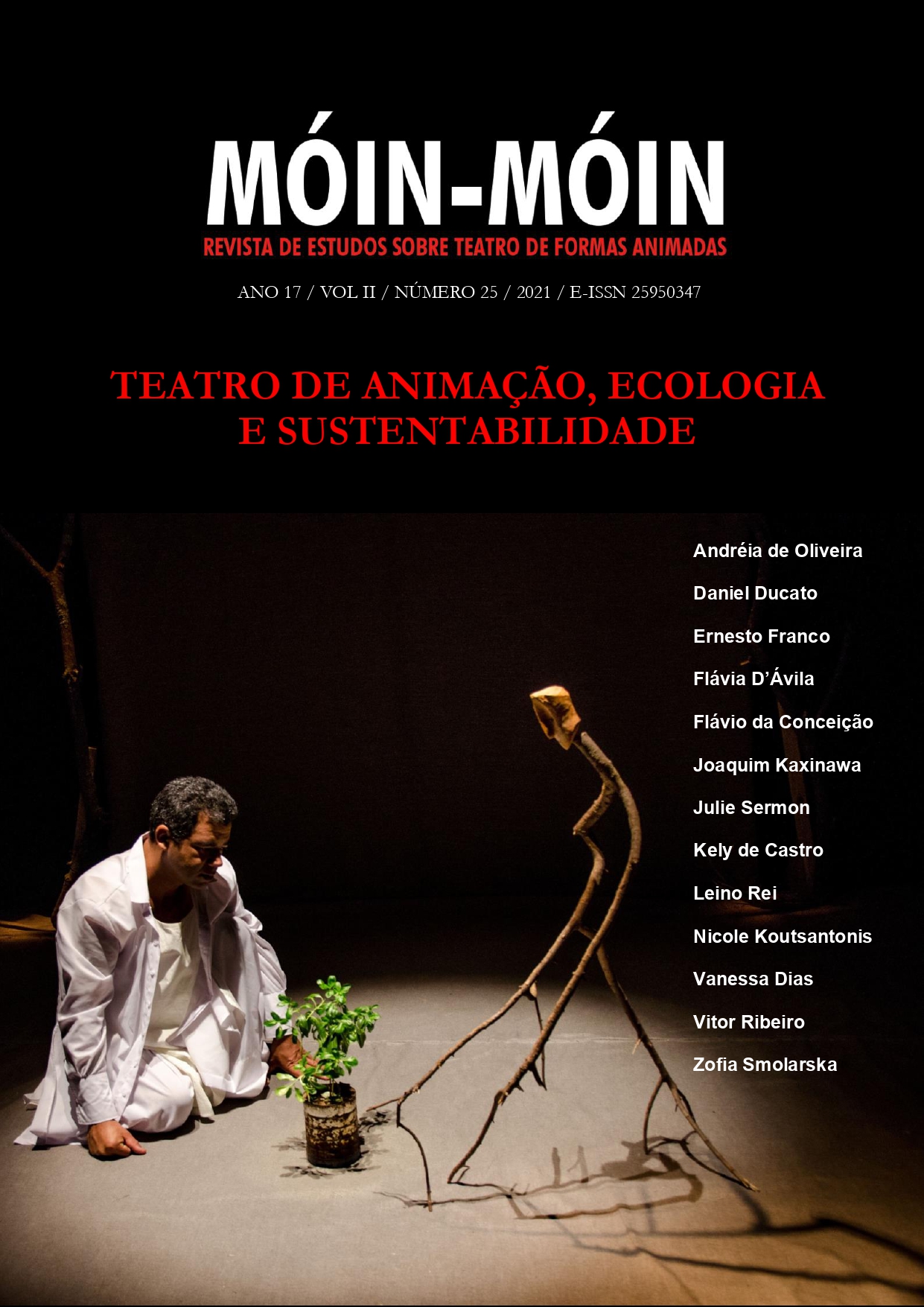Water, the treasure of the wetland
DOI:
https://doi.org/10.5965/2595034702252021107Keywords:
Eco-scenic art, sustainability, puppet theater, interactive art, artisanal knowledge, sustainable creative practicesAbstract
This text aims to introduce the reader to the process of creating an ecologically sustainable show based on sustainable artistic practices. I seek, in this way, to propose some Contributions to an eco-scenic art, which arise from the experience, reflections and conclusions of the process of creation, staging and adaptation of the large-format puppet work: Water, the treasure of the Wetland.
The civilizational crisis that has dragged on for some decades, and that has marked this era of the Anthropocene with a destructive force of the planet and of those who live in it, takes on a global and catastrophic dimension since the advent of the Covid-19 pandemic in 2020 In the midst of these cataclysms, the Uruguayan company of Títeres del Timbó immerses itself in the creation, staging and circulation of an animated show on living matter, built from natural resources and flexible to new challenges.
Understanding that art is a deep human need, and that many times in the beauty of its metaphors an expression of the truth and the unknown is found, this text proposes some contributions for the gestation of an eco-scenic art, a new art, not only possible, but necessary.
Downloads
References
Boff, Leonardo. (2015). Sustentabilidade: O que é-O que nâo é. Petrópolis, RJ. Editora Vozes.
Fischer, Ernst. (1976): “A necessidade da arte” Zahar Editores. Rio de Janeiro, Brasil.
Rebellato, Jose Luis.(2000) Ética de la liberación. Editorial Nordan-Comunidad. Mdeo. Uruguay.
Downloads
Published
How to Cite
Issue
Section
License
Copyright (c) 2021 Móin-Móin Magazine - Studies in the Art of Puppetry

This work is licensed under a Creative Commons Attribution 4.0 International License.
The readers are free to transfer, print and use the articles published in the Magazine, as long as there’s explicit mention to the author(s) and to Móin-Móin Magazine - Studies in Theater of Animated Forms and there are no changes on the original work. Any other use of the texts needs to be approved by the author(s) and the Magazine. In submitting an article to Móin-Móin Magazine - Studies in Theater of Animated Forms and have it approved, the author(s) agree to give away, without payments, the following rights to the Magazine: first publishing rights and the license for the Magazine to redistribute this article and its metadata to index and reference services that the editors consider appropriate.
The articles whose author(s) are identified represent the author’s point of view and not the official position of Móin-Móin Magazine. The author(s) commit to always mention the publication in the following way when publishing work in reference to the article published in Móin-Móin Magazine:
“This article was originally published by Móin-Móin Magazine volume (insert the volume), number (insert the number), in the year of (insert year) and can be accessed on: http://www.revistas.udesc.br/index.php/móin"
Plagiarism in any way constitutes an unethical publishing behavior and is unacceptable. Móin-Móin Magazine holds the right to use software or other plagiarism tracking methods to scan the submitted works.
![]()
This journal uses Attribution-NonCommercial 4.0 International– (CC BY NC 4.0).






